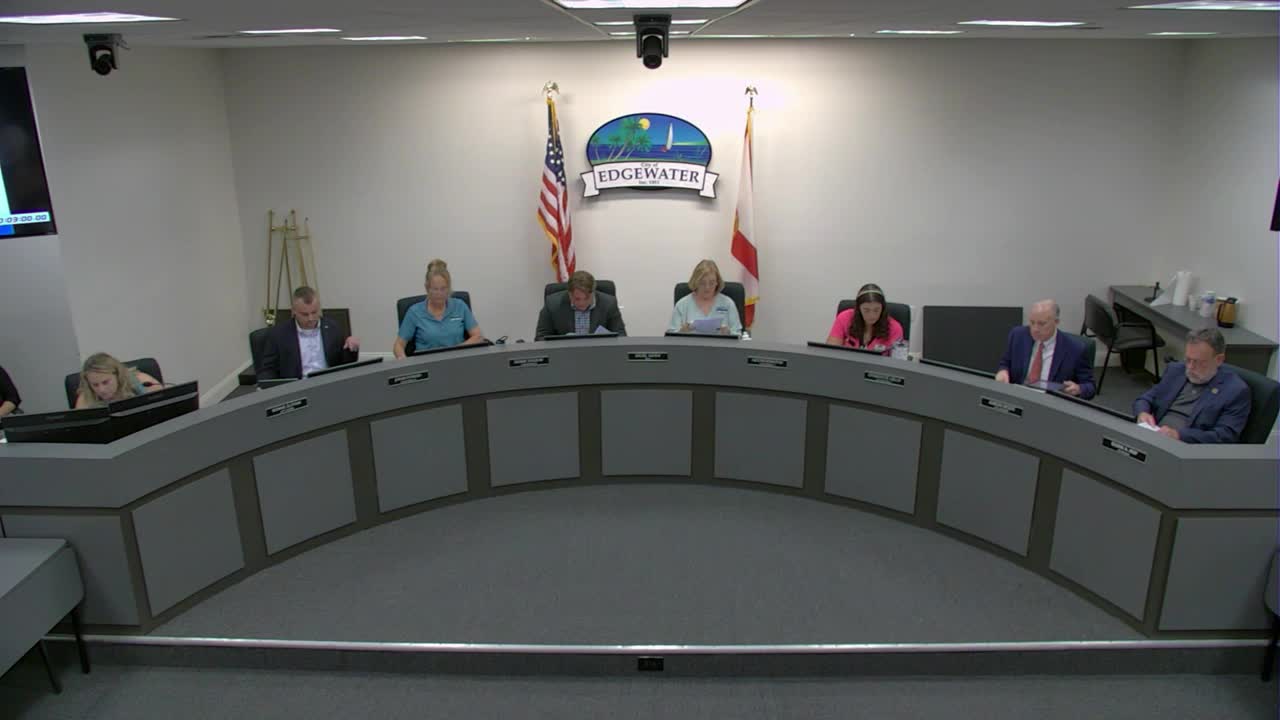Edgewater plans controversial urban connectivity amendment
July 01, 2024 | City of Edgewater, Volusia County, Florida

This article was created by AI summarizing key points discussed. AI makes mistakes, so for full details and context, please refer to the video of the full meeting. Please report any errors so we can fix them. Report an error »

During a recent Edgewater City Council meeting, officials discussed a proposed amendment to the city's comprehensive plan that aims to introduce a new future land use category called \"urban connectivity.\" This initiative seeks to enhance residential density, allowing for up to 24 dwelling units per acre, with the goal of promoting infill development that reduces vehicle dependency and encourages access to essential services like grocery stores and schools.
The proposed urban connectivity category would require developments to meet specific criteria, including proximity to grocery stores and schools, location on arterial or collector roadways, and the provision of at least 30% open space. Additionally, any future land use map amendments would necessitate a rezoning application, ensuring that developments align with the city's planning standards.
Public comments during the meeting reflected a mix of support and concern. Some residents expressed apprehension about the potential for increased traffic and changes to the community's character, fearing that the introduction of high-density housing could lead to overdevelopment and a loss of the suburban, rural feel that many value. Others highlighted the need for affordable housing options and the benefits of having essential services within walking distance.
Development Services Director Ryan Solstice emphasized that the urban connectivity concept aligns with best planning practices aimed at reducing vehicle miles traveled and enhancing community accessibility. He noted that Edgewater currently has limited rental options, with fewer than 50 residential apartment units available, making this amendment a necessary step toward addressing housing needs.
The council's decision on this amendment is seen as a pivotal moment for Edgewater, with implications for future development and the overall character of the community. As discussions continue, residents are encouraged to engage with council members to voice their opinions and concerns regarding the proposed changes.
The proposed urban connectivity category would require developments to meet specific criteria, including proximity to grocery stores and schools, location on arterial or collector roadways, and the provision of at least 30% open space. Additionally, any future land use map amendments would necessitate a rezoning application, ensuring that developments align with the city's planning standards.
Public comments during the meeting reflected a mix of support and concern. Some residents expressed apprehension about the potential for increased traffic and changes to the community's character, fearing that the introduction of high-density housing could lead to overdevelopment and a loss of the suburban, rural feel that many value. Others highlighted the need for affordable housing options and the benefits of having essential services within walking distance.
Development Services Director Ryan Solstice emphasized that the urban connectivity concept aligns with best planning practices aimed at reducing vehicle miles traveled and enhancing community accessibility. He noted that Edgewater currently has limited rental options, with fewer than 50 residential apartment units available, making this amendment a necessary step toward addressing housing needs.
The council's decision on this amendment is seen as a pivotal moment for Edgewater, with implications for future development and the overall character of the community. As discussions continue, residents are encouraged to engage with council members to voice their opinions and concerns regarding the proposed changes.
View full meeting
This article is based on a recent meeting—watch the full video and explore the complete transcript for deeper insights into the discussion.
View full meeting